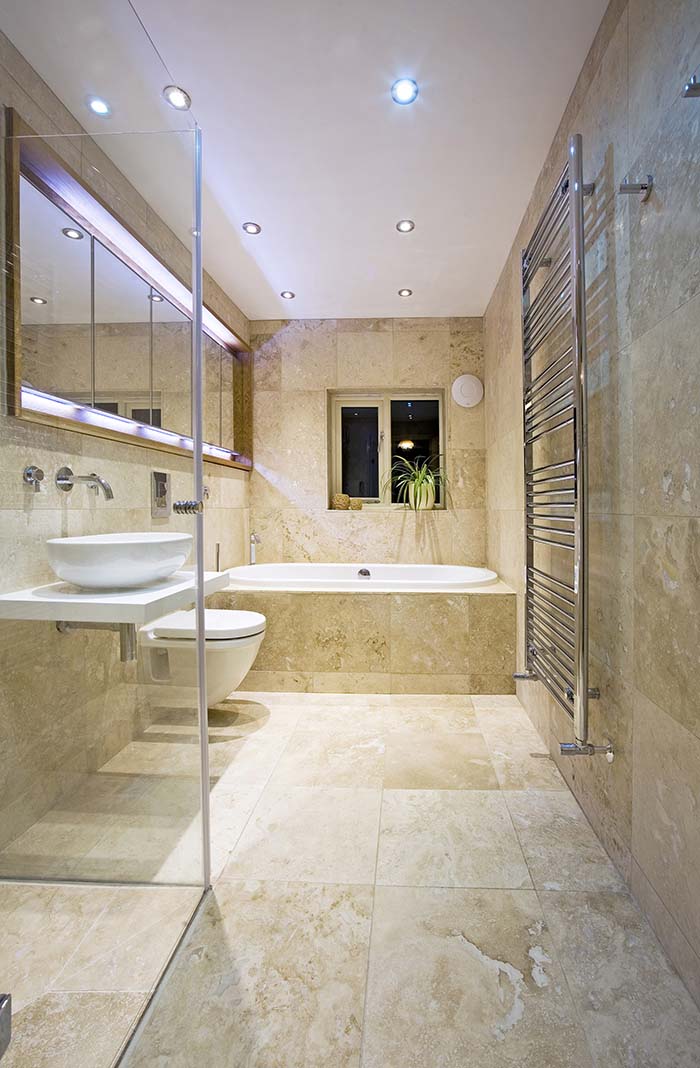Travertine Tile Maintenance
Travertine tile is a popular flooring choice as one of the most durable stone floor tile options on the market. With their comfortable and neutral color tones, travertine's roughhewn look adds texture ... Read More
Travertine Care and Maintenance
Foot traffic and how it is directed plays a role in maintenance and restoration frequency and techniques. Because Travertine is soft, it will wear more rapidly than other stone surfaces when used in flooring. Thought must be given to the traffic patterns of the installation.

Honed and Textured Travertine Maintenance
- Clean and nourish regularly with natural stone soap.
- In kitchen and food service areas use a neutral type degreaser periodically.
- Deep clean with non-acid/non-caustic cleaner periodically.
- Stain Removal ??? use a poultice.
- For smooth, honed surfaces, remove scratches, etch marks and deep clean surface with honing compound.
- Refill open holes that develop through normal use as necessary using cement or resin filler.
- Reseal periodically.
- Clean and nourish regularly with natural stone soap.
Polished Travertine Maintenance
- Use polishing protectors.
- Avoid acid polishing powders/compounds.
- Stain removal ??? use a poultice.
- Re-fill voids and holes that develop through normal use as necessary.
- Re-seal periodically.
Smooth Finish Travertine Maintenance
- Fill any open holes that develop.
- Stain removal ??? use a poultice.
- Use honing compounds for scratch and etch removal.
- Use polishing compounds for polished Travertine finish.
- Re-seal periodically.
Travertine Repairs
Travertine is naturally susceptible to chipping. Repair of these occurrences is an accepted practice and should be expected. If material is supplied unfilled, large holes or holes that go through the stone should be filled.
Travertine Impregnators
- Repel water & oils.
- Repel grout & mortar.
- Repel bacteria, mold & mildew.
- Repel graffiti.
- Make the surface harder.
- Make the surface less slippery.
- Do not alter the natural look.
- Allows vapor transmission.
- Reduces maintenance.
- Travertine Exterior Installations
- UV exposure will cause color changes in the stone and filler
- Acid rain will deteriorate the stone.
- Chemicals in pools and fountains, etc. acid, caustic cleaners can affect the finish.
- Travertine can chip, crack, and loosen.
